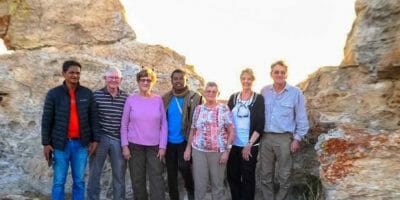The alarming situation of underemployment in Madagascar: a challenge for solidarity and sustainable development
In 2025, Madagascar continued to deal with a deep crisis within its labor market, where more than 80 % of workers occupy precarious jobs, insufficient to ensure the minimum vital. This context reflects a painful reality, fueled by a largely informal economy, a training deficit and an absence of social protection mechanisms. The persistence of this situation weakens the Malagasy social fabric, obstructs the realization of the future Madagascar, and highlights the imperative need for a collective commitment to support the economic renaissance of the Red Island. Faced with these issues, it becomes essential to initiate a vast movement of solidarity Madagascar, intended to strengthen Malagasy workforce, encourage jobs, and build a model of prosperity based on social justice and innovation. The complexity of this crisis requires a structured response, involving all actors: public authorities, private sector, NGOs, and local populations. This collective dynamic represents a chance to redefine the future of the country and to establish inclusive development, which puts humans at the heart of any growth strategy. Why do we have to act now, so as not to let the country sink more into poverty and isolation?

The multiple causes of precarious employment in Madagascar: an in -depth analysis
The precariousness of the Malagasy labor market is explained by a confluence of socio-economic and institutional factors. The first cause lies in the considerable weight of the informal sector, which occupied in 2021 almost 95 % of jobs according to the UNDP. This proportion, despite its crucial role in the survival of millions of Malagasy, decrees an almost total absence of social protections, labor rights, or minimum guarantees. Consequently, these jobs, often not declared, offer little or no stability, little prospects for evolution, and expose workers to increased risks. The weakness of investments in technical and vocational training is another major challenge. Unfortunately, less than 3 % of the population has a university degree, while 23.5 % of the adult population remains illiterate. The fracture between rural and urban areas is getting worse, making it more difficult to mobilize a competent and adaptable workforce. Finally, the insufficiency of public policies in matters of sustainable economic development and social inclusion aggravates this state of crisis, pushing a significant part of youth towards often illegal or unsanitary activities. These causes, intrinsically linked, nourish a vicious circle of poverty, making any prospect of rapid change difficult.



The devastating impacts of underemployment on the Malagasy company
The immediate consequence of this employment crisis is a deterioration in Malagasy well-being, with often dramatic socio-economic repercussions. More than 70 % of the population lives below the poverty line, unable to cover their essential needs such as drinking water, education or health. The difficulty of access to decent employment deeply alters family stability and social cohesion. Malnutrition and food insecurity become commonplace in rural and urban areas, while many young people prematurely abandon the school for lack of financial means to continue their training. This precariousness also exacerbates vulnerability to external factors such as natural disasters or health crises, such as the COVVI-19 pandemic. The lack of economic perspectives fuels delinquency, crime and despair, further digging the social gap. Children without a future, families without resources, and a social fabric weakened in his very soul illustrate a Malagasy society at the crossroads: should we continue to ignore this crisis or act for a lasting change?



Key sectors to revive the economy and create sustainable employment in Madagascar
To reverse this deleterious trend, an integrated strategy must be implemented, aimed at boosting certain sectors with growth. The textile and fashion sector, for example, represents a major opportunity for the creation of skilled jobs, in particular in the cut and sewing sector sustained by the NGO via Don Bosco. The valuation of tourism, rich in its exceptional landscapes, can also generate sustainable jobs, especially in the hotel industry, the catering and the management of heritage sites. In addition, the development of sustainable agriculture, in particular through the local transformation of products, offers concrete opportunities for the Malagasy workforce. Priority must also be given to the emergence of innovative companies in digital technologies and digitalization, promoting a more dynamic entrepreneurial environment. Here are some fundamentals to catalyze this revival:
- 🌱 Encourage agro-industry and rural transformation
- 🧵 Support the textile sector with suitable training
- 🌍 Develop ecological and solidarity tourism
- 💻 Invest in the digital economy and technological innovation
- 🤝 Promote international and local partnerships
Local and international initiatives to promote jobs
For several years, Madagascar has benefited from an interesting fabric of initiatives, based on Madagascar solidarity and collaboration between public actors, NGOs and private companies. Active support for programs like that of the UNDP or the NGO via Don Bosco made it possible to quickly insert an often abandoned youth. The review of initiatives present in 2025 shows a concerted effort to strengthen the development of human capital through training, support and access to financing. Among these actions, the implementation of specialized vocational training centers, such as CFP Marie Auxiliator or support for local entrepreneurship projects, have become essential levers for economic inclusion. These efforts are part of an implementation logic of a job model, which brings together all the actors around a common project: to ensure a decent employment for each Malagasy, both in the formal sector and in the social economy. The strategy must continue to rely on a better adaptation of training to market needs and to the enhancement of traditional modernized know-how.
Public policies for an inclusive red island prosperity in 2025
It is urgent that the Malagasy state, in partnership with its international partners, deploys a coherent and ambitious policy to promote Red Prosperity, by prioritizing the fight against poverty and precariousness. The implementation of structuring projects such as the inauguration of new roads, the development of modern transport infrastructure or the digitalization of public services are all concrete actions to facilitate access to the labor market. The revision of employment legislation, the implementation of SME support systems and the valuation of natural resources could also contribute to the creation of an environment more favorable to productive investment. Transparency, consistency and perseverance are the keys to building governance capable of attracting investments and structuring a more equitable labor market. The international community, with its cooperation programs and funding, must continue to support Madagascar in this way, for a real solidarity Madagascar to manifest itself in the construction of a more resilient and inclusive future.
The challenges of human development: education and training at the heart of change
The fight against poverty and underemployment in Madagascar undeniably involves in-depth reform of the education system and vocational training. The increase in illiteracy rates, which still concerns 23.5 % of the adult population, strongly limits access to qualitative jobs. The majority of young Malagasy people have only a primary level or any diploma, which excludes them from the formal labor market. However, Madagascar’s demographic power represents a unique opportunity, if an ambitious program is set up to develop skills adapted to the requirements of the current market. The generalization of quality education, the promotion of training in business, and an orientation towards technological innovation must become a national priority. The diversification of the educational offer, the valuation of local know-how and a partnership with the private sector could help transform this youth into an economic force. The key to this transformation lies in a firm political will, accompanied by a constant investment program in human capital.
Frequent questions about the employment crisis in Madagascar in 2025
- What are the main growth sectors in Madagascar? Fashion, tourism, agro-industry and the digital economy constitute its pillars, offering concrete opportunities for employment and investment.
- How to strengthen social inclusion in the context of underemployment? By developing differentiated training programs, supporting micro-enterprise and establishing Madagascar solidarity mechanisms adapted to local realities.
- What actors can promote sustainable change? Governments, associations, NGOs, private sector and civil society all have a key role in building a fairer and more united economy.
- What are the obstacles to the implementation of a decent job? The weakness of investments, insufficient training, the absence of an adapted legislative framework and the precariousness of the informal sector.
Source: www.lalibre.be











